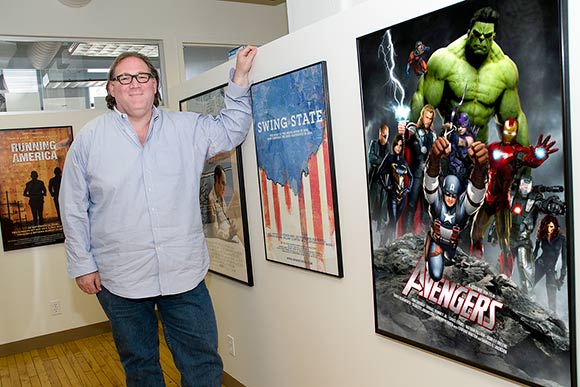Could an $80 million tax credit bring more movies to Ohio?
Thanks to the $40 million Ohio Motion Picture Tax Incentive, productions like White Boy Rick (a feature film starring Matthew McConaughey) and "American Ninja Warrior" are just a few that have turned their lens on The Land this year—and in light of the State of Ohio’s recent renewal for the 2017-18 fiscal year, they’re likely to keep on coming. Funding will be used to attract large-scale media productions into the region, but local entities are also lobbying for an increased tax credit that would make Northeast Ohio an even more powerful magnet for Hollywood's creatives.
"Without a film incentive, there would be no movies in Ohio," says Ivan Schwarz, president of the Greater Cleveland Film Commission (GCFC), a nonprofit advocacy organization. "The incentive is a tool to create a new industry in-state."
The credit, which renewed on July 1, has drawn nearly 90 film and television productions to Cleveland since its passage in 2009. The city hasn't just been a location for headline-grabbing blockbusters like "The Avengers," notes Schwarz; in May, "American Ninja Warrior" taped an episode on Public Square. "The show is great for branding," Schwarz says. "They chose to shoot in Cleveland because of the work we did."
According to GCFC, ongoing media production has led to $400 million in economic impact and 1,700 full-time equivalent jobs statewide. Big projects hire literally hundreds of local vendors—not only bars and restaurants, but lumber companies, caterers, office supply firms, mechanic shops and other businesses willing to provide their services to a film crew.
 Set of The Avengers movie in Downtown Cleveland
Set of The Avengers movie in Downtown Cleveland
"The proof is in the pudding," says Schwarz. "There are so many aspects to a project [that] people don't realize the impact."
Visions of a boundless economic boost have led GCFC to push for an $80 million annual incentive. While the current credit has lured its share of movies and television programs, a larger incentive would attract more productions and allow for creation of soundstages, production offices and additional filmmaking infrastructure.
"With that in place, we'll be able to bring thousands of more jobs, and hundreds of millions more dollars to this state and to Northeast Ohio," Schwarz says.
Put simply, capping the credit at $40 million has caused the region to lose opportunities, adds the nonprofit official. For instance, he believes Cleveland should be getting productions like "Where'd You Go, Bernadette" (the new Richard Linklater comedy set to film in Pittsburgh). Meanwhile, Georgia's incentive-fueled television and film industry garners $7 billion annually, a lucrative situation Cleveland could potentially emulate should the state's purse strings loosen.
For now, two significant projects will be filming in the city within the next year. More dollars in the coffers could create a thriving entertainment enclave and diversify an economy that needs the help.
"This is an industry that attracts attention globally, so we would get an economic and branding impact," says Schwarz. "You can't put a price on that."





